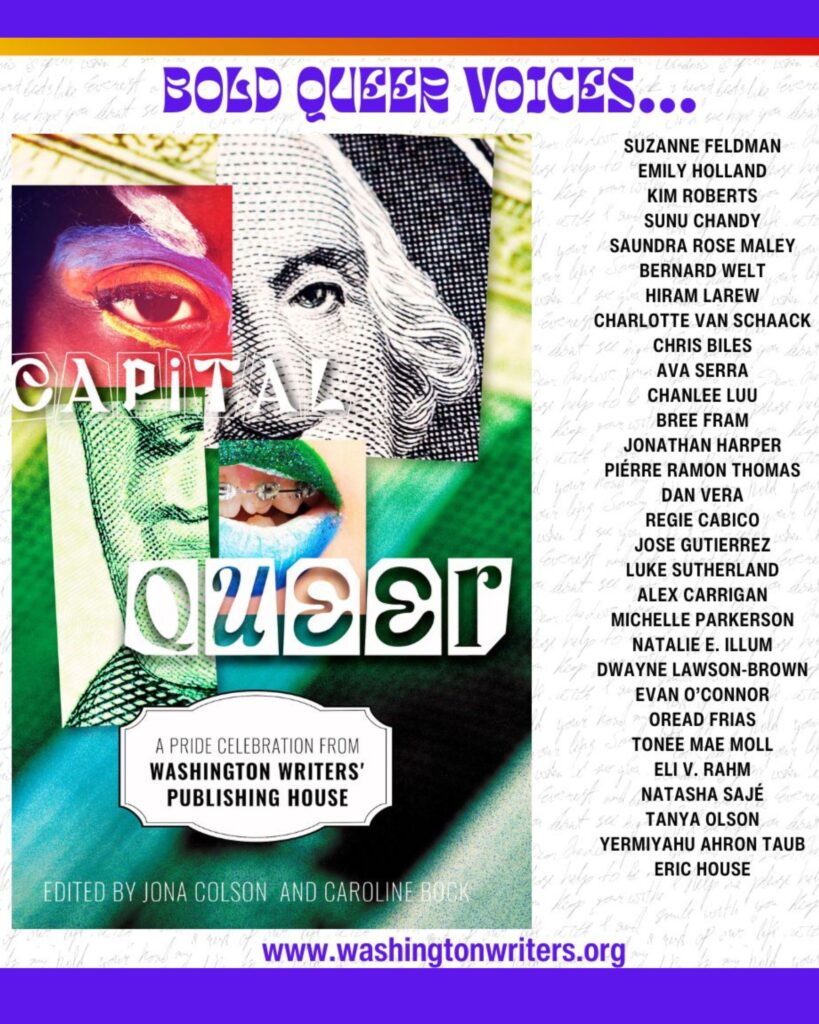

WWPH Writes 99… and we are spotlighting two works from CAPITAL QUEER: A PRIDE CELEBRATION, our first-ever pocket-size anthology, which features queer writers from DC, Maryland, and Virginia. This collection uplifts queer literature and celebrates the power of words, and we are happy to share poetry by Jose Gutierrez and a memoir excerpt from Piérre Ramon Thomas.
We are eager to read your work! Our book-length manuscript contests are now open for submissions. We are seeking poetry, fiction, and for the first time, poetry in translation. You receive: a $1,500 award, publication, editorial guidance, and the opportunity to call us your press-mates! The deadline is July 15th. TINY POEMS return this August to WWPH Writes. This is when we publish lots of TINY POEMS and show them lots of love. This year’s call is for American Haiku with themes of celebration, resilience, and rebellion. FREE to submit! See below for more information.
Lastly, please join us at our 50th Anniversary Celebration at the Writer’s Center in Bethesda on Sunday, September 14. This is a rare ticketed event for your Washington Writers’ Publishing House — $50.00 for our 50th ($40 if you are members of the Writer’s Center)– and we are taking over the Writer’s Center with celebratory readings in the theater featuring Grace Cavalieri and E. Ethelbert Miller and more special guests, plus, live jazz, libations, and literary festivities!
Tickets are available here and are limited to the number of theater seats.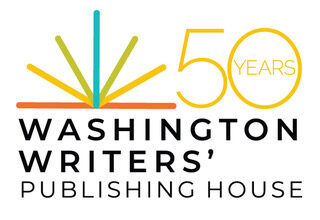
Read on!
Caroline Bock & Jona Colson
co-presidents/editors
WWPH WRITES POETRY
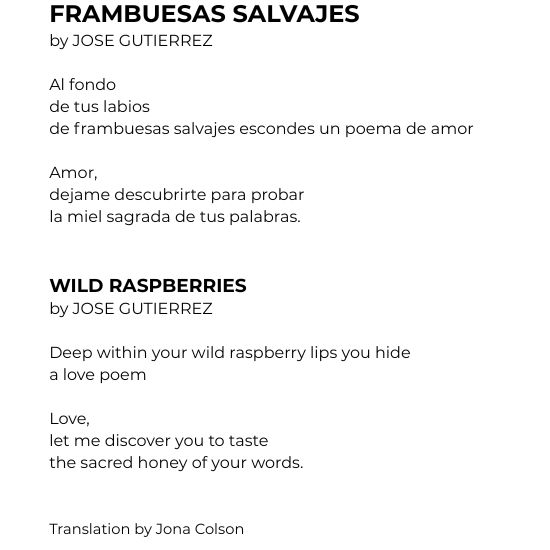
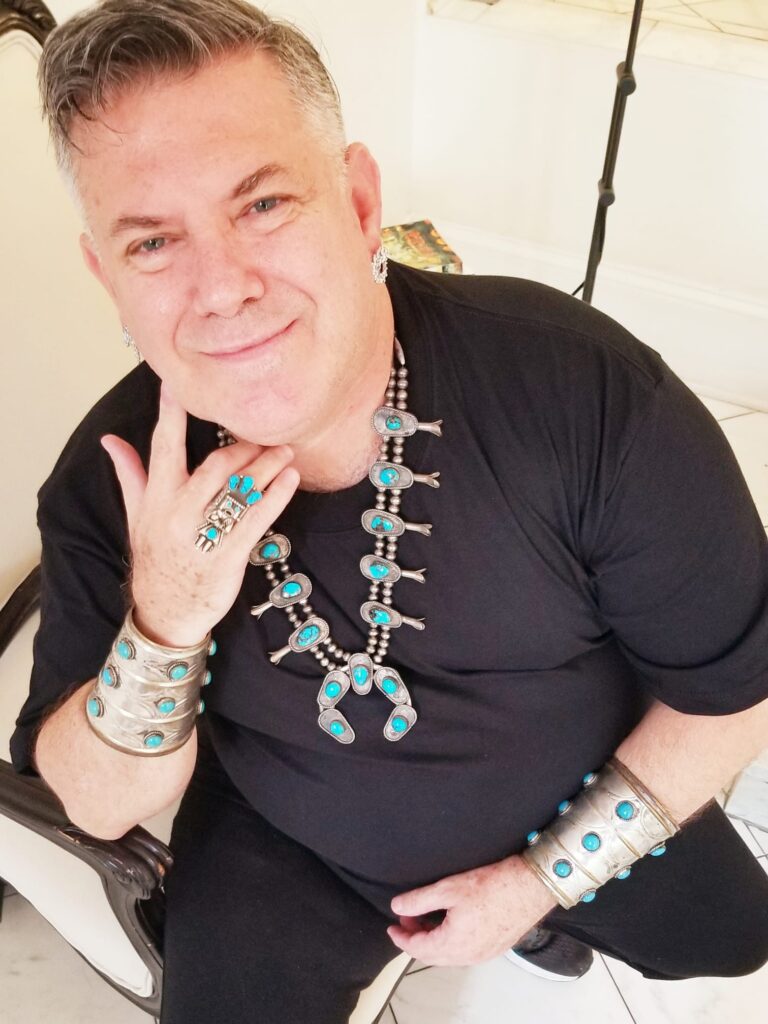
Jose Gutierrez is a local and national long-time human rights and social justice activist, immigration advocate, Latinx LGBTQ historian, artist, writer, and poet. He is the founder of the Jose Gutierrez Archives, the Latino GLBT History Project, the DC Latino Pride, and co-founder of the Rainbow History Project.
WWPH WRITES PROSE
TO BE BLACK AND GAY AND FEMININE
by PIÉRRE RAMON THOMAS
an excerpt from the memoir‐in‐progress Pink Black Boy (Inspired by “Young, Gifted and Black” by Nina Simone and “To Be Black and Woman and Alive” by Crystal Valentine and Aaliyah Jihad)
To be a Black man and gay and feminine is to understand that society holds no space for you to exist peacefully. You might create small oases where you’re fully free to express yourself and exist without judgment, but you’re not afforded the full freedom others have. Not unless you advocate for yourself. If you’re not accosted by the Bible‐ thumpers condemning you to an eternal lake of fire on one side, you’re harangued by the “pro‐black,” Pan‐Africanist hoteps and hoteptresses who peddle “Being gay isn’t African; you learned that from the white man!” on the other side. If you’re not dealing with racism from straight and queer Whites on one side, you’re dealing with the femme‐ phobic, masc4masc bros within the LGBTQ+ community on the other side. You experience these forms of hatred many times back‐to‐back, and still, you must embody resilience.
To be a Black man and gay and feminine is to have your sexuality and gender expression easily recognized, and because your sexuality and gender expression are easily recognizable, you often have to endure hatred from people you’re supposed to share community with. On the other hand, Black gay masculine men are able to traipse through the Black community unseen and unharmed because, even in the twenty‐first century, people still associate male feminin‐ ity with homosexuality—not understanding that gender ex‐ pression has nothing to do with sexuality. (Look at Rick James and Prince, for example.) Anyone—masculine or feminine, man or woman—can be gay, bisexual, or straight. So, because Black gay masculine men are able to have their sexuality unnoticed, undetected, and unseen, they often join in on the verbal violence and judgment against Black gay feminine men with the Black community at large. Instead of forming community with Black gay feminine men or acknowledging that we’re part of the same larger community, Black gay masculine men make it clear that we are not in community with each other and encourage others to detest us, deride us, and consider us unlovable.
To be a Black man and gay and feminine is to know and have the understanding that there is not a premium among gay men for feminine men, especially Black feminine men. When femininity is desired in a man, it’s usually in white, Latino, or Asian men. Black gay feminine men are an afterthought or not thought of at all. A nonthought. Masculine men say, “If I wanted to be with a girl, I’d just be with a girl” or “We’re men. We’re supposed to act like men.” Even other feminine men say, “Girl, I don’t wanna be with no other femme; I don’t want to bump pocketbooks.” Sometimes, you are rejected and undesired for both your Blackness and your femininity, and, at other times, your femininity as a Black man is somehow considered contradictory or oxymoronic. It is to know this and see this and still love yourself enough to be yourself anyway.
To be a Black man and gay and feminine is to know that, to many, you’re not considered worthy enough to become a romantic partner. Since very few are willing to love a Black gay feminine man out in the open, you must be willing to be “loved” in secret. To the fearful majority, a Black gay fem‐ inine man is good enough for sex, good enough to satisfy that secret desire they have of being with a feminine man— especially if they date a woman publicly—but a Black gay feminine man is not considered good enough to be loved and claimed publicly. Knowing this forces you to choose: Will you continue to be used secretly or wait for someone willing to love you publicly?
To be a Black man and gay and feminine is to know that, friend‐wise, you don’t hold a lot of value in the imaginations of women unless you are the comic relief, the one with “all the tea,” the one who can “clock all the DLs,” or you can pro‐ vide some service only a gay man can provide. At best, you’re a poodle: there for her companionship. When she’s in the mood, she plays with you, but when she has what she needs, she leaves you to yourself—even if you’re in need of her companionship. At worst, the “friendship” is transparently one‐sided. She cries and vents to you about her man troubles. You’re there to make sure her hair, makeup, and outfits are on point. Her proximity to you ensures that she can partake in the crazy party life of the gays—but you can never seek depth or intimacy from her because “the friend‐ ship” never goes deeper than that. Hell! When you try to seek some measure of reciprocity in “the friendship,” suddenly, like a magician, she disappears. She’s nowhere to be found. She’s busy. And God forbid you are an unconventional gay: not into makeup or hair or fashion or celebrity gossip; not really that heavy into partying; spiritual; artsy; into nature and plants and herbs and gardening; prefers museums, plays, art shows, movies, and unconventional events. If you are different from the caricature they have in their minds of what a gay man is, you lose your value to them as a friend.
To be a Black man and gay and feminine is not to have your softness, your delicateness, your tenderness validated. Stereotypically, Black men are supposed to be aggressive, masculine, and threatening. Many have claimed that fem‐ ininity in Black men is performative and, in most cases, is nothing but a futile attempt to either be like Black women or to try to outdo Black women. Despite the fact that Black feminine men were once little Black feminine boys, naturally and organically, who also learned and modeled their femininity after the femininity of their Black mommas, grandmommas, aunts, female cousins, and so on and so forth. (Black male femininity is both naturally occurring and reinforced by the Black female presence in their lives.) To their myopic conclusion, however, Black male femininity is fake; to them, there’s no way femininity can be expressed from a vessel from which we’ve come to expect nothing but violence and aggression.
To be a Black man and gay and feminine is to suffer from the negative stereotype that all Black gay feminine men are loud, toxic, messy, and catty. What the juvenile nature of that stereotype doesn’t acknowledge is that there are a number of Black gay feminine men who are quiet, mature, peaceful, even‐tempered, loving, drama‐free, and too many other positive traits that I don’t have the white space to list. However, it is much easier to regard a subset of people with a generalization rather than getting to know people individually so—To be a Black man and gay and feminine—unapologetically—is to write a love letter to yourself every day. It is to be a banner, a living example, a walking declaration of self‐love.
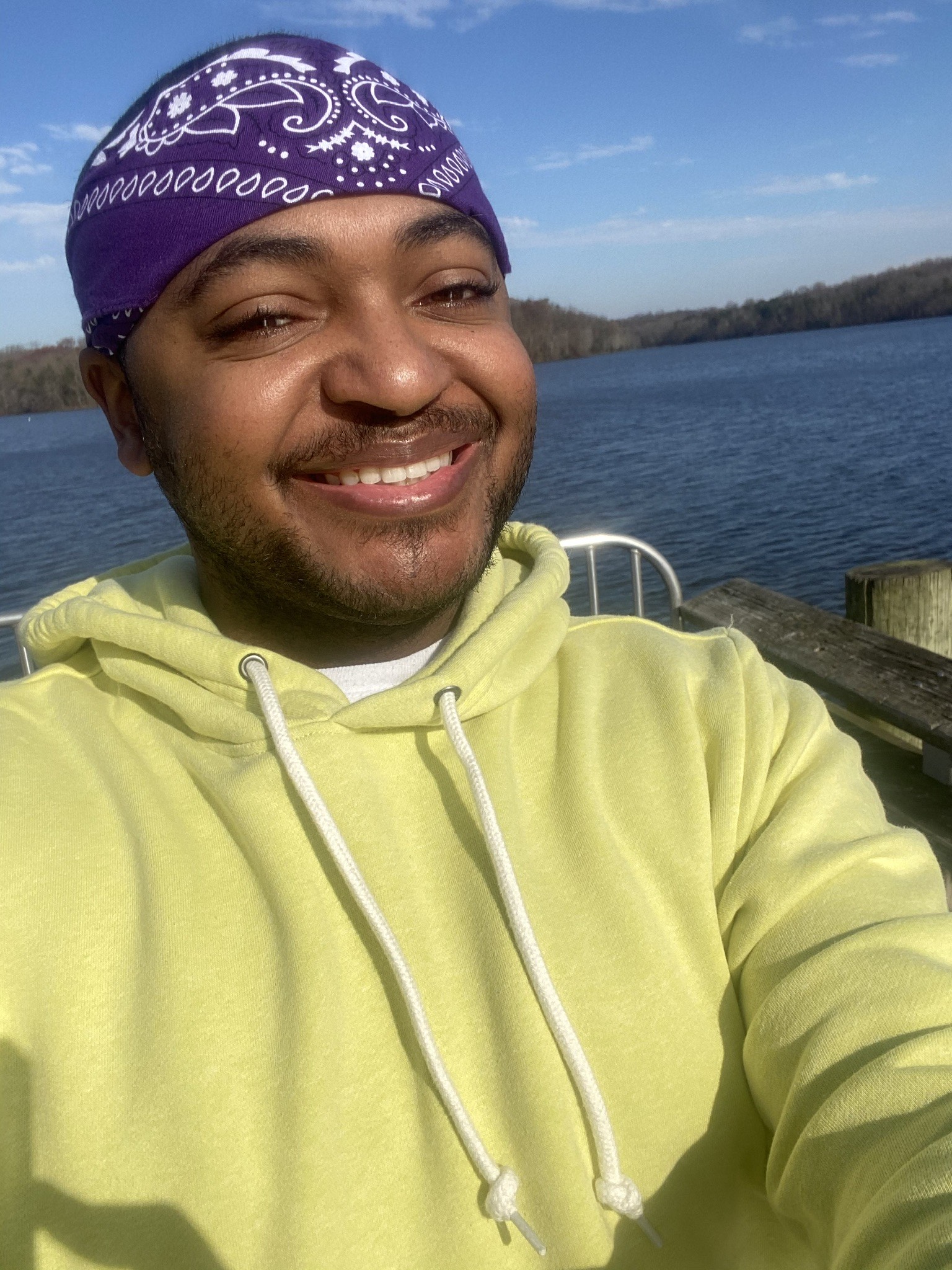
Piérre Ramon Thomas is the author of The Nomadic Poet. Published works of his can be seen in The Mid‐Atlantic Review, WWPH Writes, and BlueInk. Thomas calls Fairfax home and will be pursuing an MFA in Creative Writing in the fall of 2025. Currently, he’s working on his memoir.
Bravo to all the contributors to CAPITAL QUEER: A PRIDE CELEBRATION. Now available everywhere books are sold. Support your WWPH and purchase here. Join us at People’s Books in Takoma Park, Maryland on Wednesday, June 25th for a reading/celebration (read on for details!)
WWPH NEWS
2025 MANUSCRIPT CONTESTS are now open! If you are considering submitting your book-length manuscript to WWPH, check out our guidelines and FAQs (new for 2025!) here.
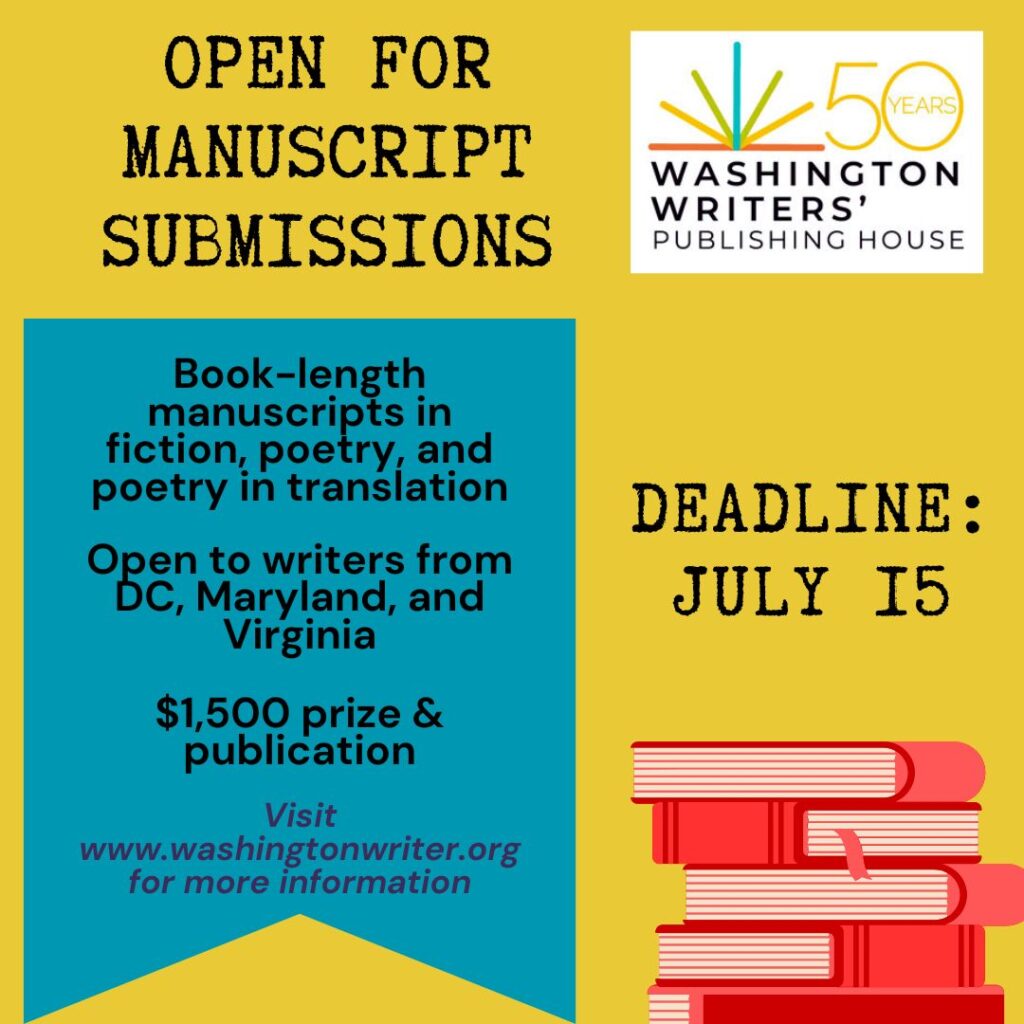
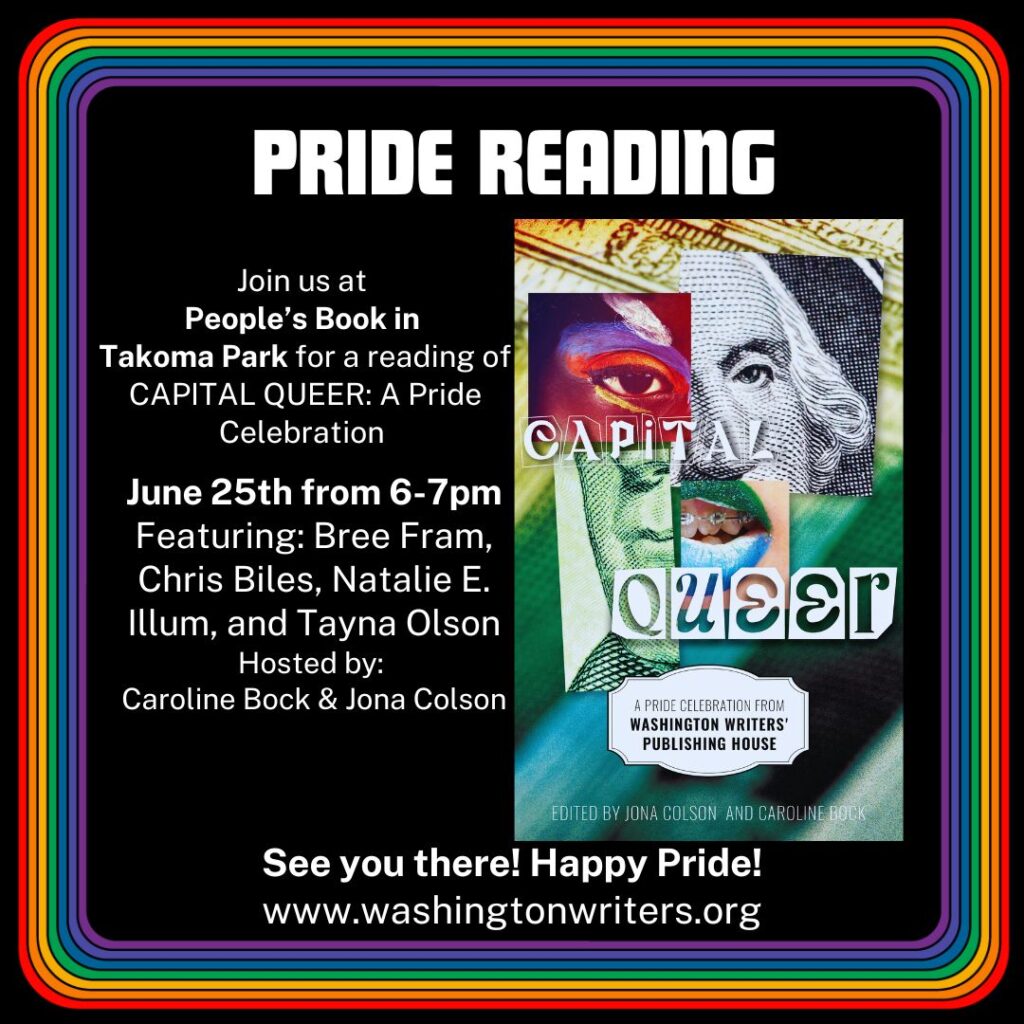
Join us on Monday, June 30th from 7-10 pm at Rhizome DC for our first WWPH Literary Salon of 2025. Our WWPH Literary Salon: PRIDE Edition will be a three-hour fete of creative writing workshops, readings, and free-wheeling discussion–free and open to all. An RSVP is required (space is limited to 50- so, sign up now). Co-editors Jona Colson and Caroline Bock will host the event, poets KIM ROBERTS and DR. TONEE MAE MOLL will lead the creative writing workshop part of the Salon–and many writers from Capital Queer will read from our new anthologyk (which is now for sale everywhere!)
RSVP here for our WWPH Literary Salon: PRIDE Edition, which is made possible by a grant from the DC Commission on the Arts & Humanities.
FREE TO SUBMIT!! Open through JULY 6.
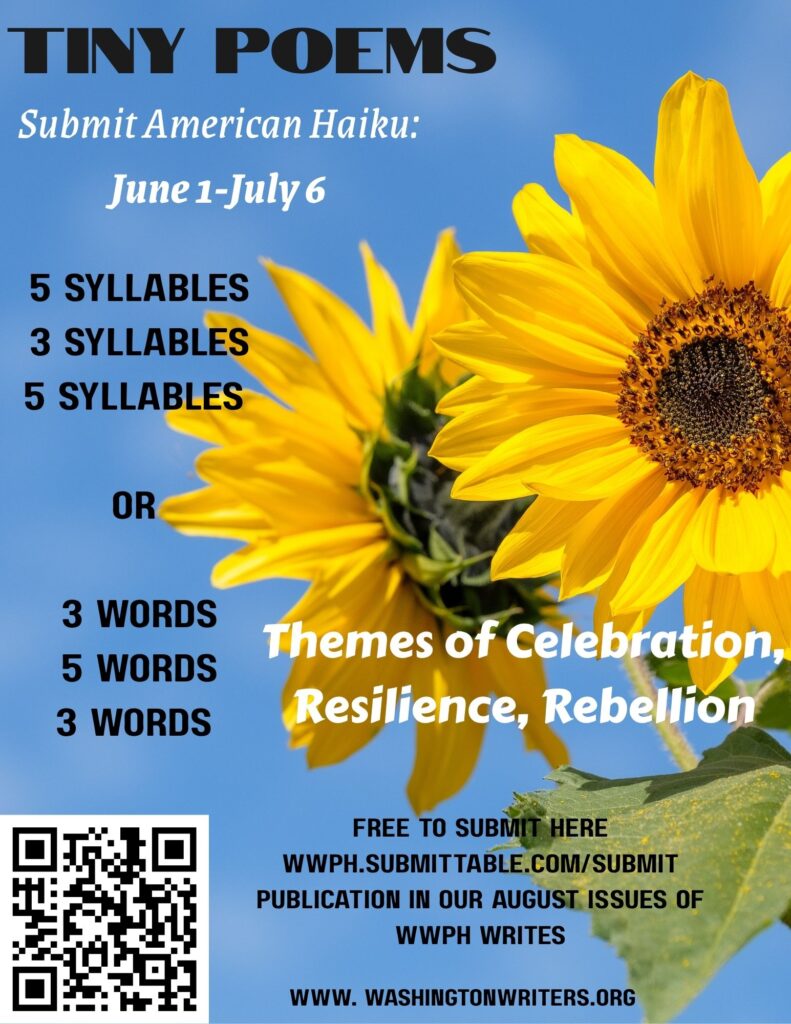
WWPH WRITES is open for submissions! We now pay $25.00 for poetry (up to 3 poems) and prose (up to 1,000 words of fiction or creative nonfiction–and we only have only 4 open slots for prose remaining for 2025!) Free to submit! And Caroline is especially seeking horror, weird fiction, or creative nonfiction to publish in October. More details regarding all our calls for submissions on our Submittable page here.
Thank you for being part of the Washington Writers’ Publishing House’s community!

